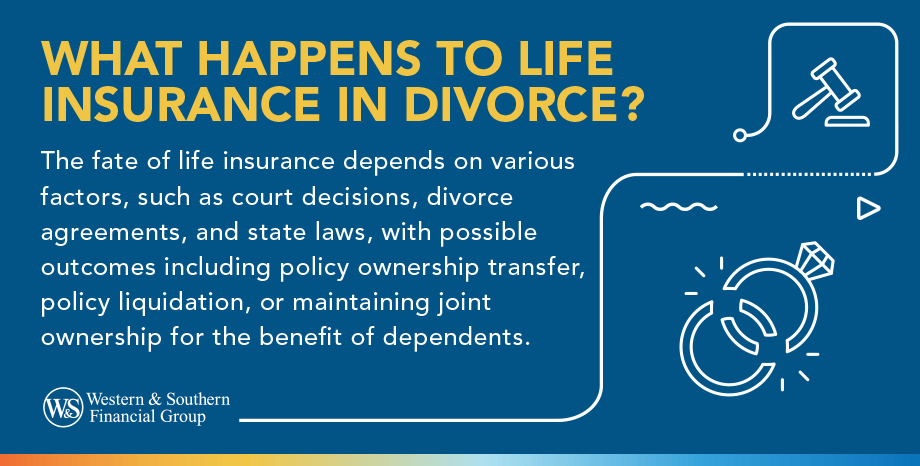

Table of Contents
Key Takeaways
- Life insurance policies usually remain in effect during and after divorce, but it's important to review and update them if necessary.
- Divorce can impact your life insurance coverage needs, especially if there are children involved or significant changes in income.
- Consider consulting with your attorney and a financial representative to assess your specific life insurance requirements.
- Review the fine print of your policies, especially if child support or alimony is involved, and ensure you understand your divorce settlement.
- After divorce, you may want to change your beneficiaries and consider appointing a trust or guardian for minor children.
Divorce is a big life change that can be challenging and stressful. Remember to prioritize your financial future. During this time, it's common to reassess various aspects of your life, such as living arrangements, child custody, and retirement plans. Additionally, don't forget about the importance of life insurance in your long-term estate planning.
As you're going through this process, you might wonder what happens to life insurance during divorce. It's a good question, and there is a lot to consider.
Understanding Life Insurance & Divorce
There are usually a number of complex financial details to work through during a divorce. There's often income, property and other assets that need to be accounted for and divided — not to mention your changing retirement needs. Life insurance is one more factor you'll likely want to pay attention to as you go through the process. In general, any life insurance policy you or your former spouse have will remain in effect as is.
Divorce may not change that. However, you might want to look at your policy and make changes. Some of these changes may include updating coverage, starting a new policy or changing your beneficiaries. Consider consulting with your attorney first.
Examining Your Coverage Needs
After a divorce, your financial situation could look very different. If your former spouse was the sole bread winner or had a significant income, then splitting up could affect your life insurance coverage needs. This may also be true if you're the primary caretaker for your children.
You should consider both your short- and long-term financial needs and expenses. If you have young children, you may want to increase coverage, so the death benefit is enough to replace your income for them over the long-term. If you're older or don't have kids, you may want to make sure you have enough coverage to cover funeral and related expenses.
Every person's situation is unique, so consider speaking with your attorney and then a financial representative who can help you sort through your specific life insurance needs.
Reading the Fine Print
You might want to speak with your lawyer about some of the other considerations around your life insurance policies. For example, if your soon-to-be former spouse is going to pay child support or alimony income, then you might want to consider taking a life insurance policy on them. This sort of policy can provide a death benefit that may help provide for your children until they reach adulthood.
If you have come to an agreement that includes life insurance in your divorce settlement, consider going through it carefully with your divorce lawyer to make sure you understand everything that's in it.
Double-check the amount of coverage, duration of coverage and who will pay the premiums. Once your divorce decree is signed, it's often difficult to change, so you may want to spend a little extra time now to help ensure everything is in order.
Reviewing Your Beneficiaries
A married person will often list their spouse as their beneficiary — the recipient of a death benefit — on a life insurance policy.
Once divorced, however, you might not want to keep your ex-spouse as your primary beneficiary any longer. It may make sense to review your life insurance policy and make changes to the listed beneficiaries, but consider consulting with your attorney first.
If you're a newly single parent, you might choose to list your children as your beneficiaries. If you do have minor children as beneficiaries, consider creating a trust or appointing an adult guardian who can handle funds for them until they reach adulthood.
The Bottom Line
Divorce can often be a rocky path. But there's always a light at the end of the tunnel. Knowing what happens to life insurance in divorce can be a big step toward taking care of your long-term needs. It's one more thing you can do to help ensure that your family's financial future is protected.






























